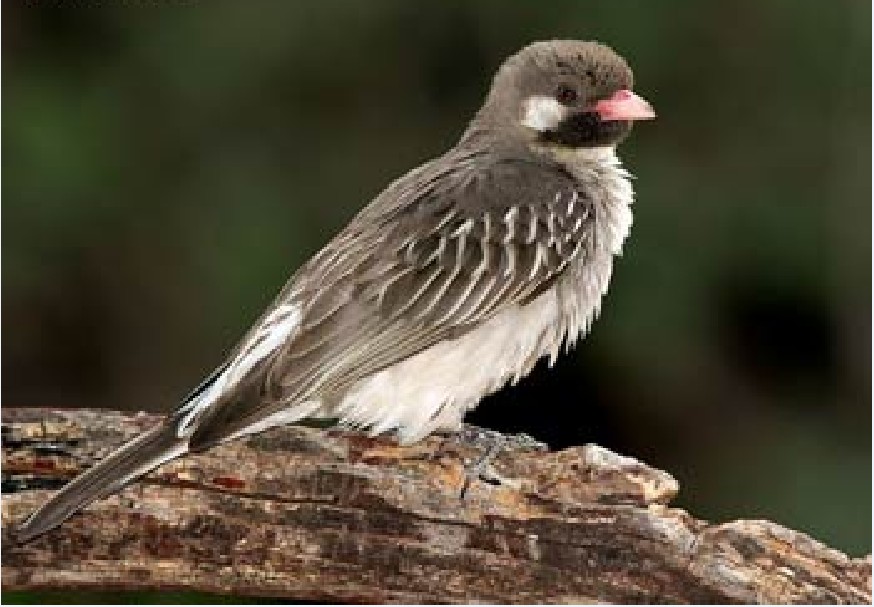(单词翻译:单击)
听力文本
This is Scientific American — 60-Second Science. I'm Sara Chodosh.
This is a story about the birds and the bees. When the Yao people of Mozambique want to find beehives full of honey they make this noise [brrrr-hm]. That sound attracts the attention of what are appropriately called honeyguide birds.
"If you ask Yao honey-hunters why they go brrrr-hm when they're looking for a honeyguide, they'll tell you, well, it's the best way to attract a honeyguide and to maintain its attention while you're following it to a bees' nest."
Claire Spottiswoode, of the University of Cambridge in England and the University of Cape Town in South Africa.
The Yao have long known that they could attract honeyguides vocally, as part of a rare example of a mutualistic relationship between people and wild animals. The humans get honey and the birds then get what they want—the previously unattainable wax of the beehive, which they consider a delicacy. Spottiswoode's study provides evidence that the humans are actually communicating with the birds.
"We wanted to specifically test whether honeyguides responded to the exact information content of the brrrr-hm call, which signals, if you wish, 'I'm looking for bees' nests,' so we wanted to distinguish that from the alternative that the call simply alerts honeyguides to the presence of humans."
Which the research team did—birds were much more likely to respond to brrrr-hm than to other sounds. The study is in the journal Science.

Honeyguides may help people, but to other birds they can be monsters.
"Honeyguides are the real Jekyll and Hyde of the bird world...like cowbirds or cuckoos, honeyguides are brood parasites—they lay their eggs in other birds' nests and exploit the care of other species to raise their young. And their chicks hatch with these very sharp hooks at the tips of their beak, which they use to stab the host young to death as soon as they hatch."
You can watch some of this horror-movie-worthy footage that Spottiswoode captured several years ago by googling the phrase "honeyguide murder."
As Africa becomes more urbanized, fewer people are engaging the birds to help them find honey. And the relationship between honeyguides and honey-hunters may be fraying.
"A young honeyguide hatches in the nest of another species knowing how to be a honeyguide. Because it doesn't have the opportunity to learn from its own parents. But then if that's not reinforced by experience, it's lost."
In the not-too-distant future then, honeyguides may still know where the beehives are—but they'll be keeping that information to themselves.
Thanks for listening for Scientific American — 60-Second Science Science. I'm Sara Chodosh.
参考译文
这里是科学美国人——60秒科学。我是萨拉·科多什。
这是一个有关鸟类和蜜蜂的故事。当莫桑比克的尧族人民想要找到装满蜂蜜的蜂巢时,他们就会发出这样的声音。这种声音可以吸引被称作响蜜鴷的鸟类。
“如果你问尧族猎蜜人为什么在寻找响蜜鴷时发出这种声音,他们会告诉你,这是吸引响蜜鴷的最好方法,而且可以在找到蜂巢之前留住响蜜鴷的注意力。”
克莱尔·斯波蒂斯伍德来自英国剑桥大学和南非开普敦大学。
尧族人早就知道能用声音来吸引响蜜鴷,这是人类和野生动物之间互惠关系的罕见例子。人类获得蜂蜜,而响蜜鴷也会得到它们想要的——之前无法获得的蜂窝中的腊,这种鸟类将其视为珍宝。斯波蒂斯伍德的研究为人类和这种鸟类之间的交流提供了证据。
“具体来说,我们想测试的是响蜜鴷是否会对人类发出声音中含有的特定信息做出回应,这种信息传递的信号是‘我在找蜂巢',我们想将这种声音和单纯警示人类存在的声音区分开来。”
研究团队发现,与其他的声音相比,鸟类对第一种声音的回应较多。该研究结果发表在《科学》杂志上。
响蜜鴷可能对人类有帮助,但是对于其他鸟类来说,响蜜鴷则如猛兽一般。
响蜜鴷是鸟类中双重性格的代表,如燕八哥或杜鹃一样,响蜜鴷是巢内寄生体——它们在其他鸟类的鸟巢中产蛋,然后利用其他物种抚育自己的孩子。同时响蜜鴷幼崽的喙部尖端呈钩状,一旦寄主的幼鸟孵化,这些响蜜鴷的幼崽就会用尖尖的嘴将其啄死。
斯波蒂斯伍德数年前捕捉到了这样的恐怖镜头,大家可以通过网络检索“响蜜鴷谋杀”进行观看。
由于非洲城市化的程度越来越高,依赖响蜜鴷来寻找蜂蜜的人越来越少。因此,响蜜鴷和猎蜜人之间的关系可能会受到损害。
“在其他鸟巢中孵化的响蜜鴷幼鸟知道如何寻找蜂蜜。可是它们没有从父母那里学习这种本领的机会。如果这种技能没有经验的强化,也会失传。”
在不远的将来,响蜜鴷可能仍然知道哪里有蜂巢——但是它们会保守秘密。
谢谢大家收听科学美国人——60秒科学。我是我是萨拉·科多什。
译文为可可英语翻译,未经授权请勿转载!
重点讲解
重点讲解:
1. respond to 回复;回答;回应;
例句:He responded to my suggestion with a nod.
他点头回应我的建议。
2. distinguish from 区分;辨别;分清;
例句:It's important to distinguish fact from fiction.
把现实与虚构区分开来是很重要的。
3. to death (用于动词后)以致死亡;
例句:He was beaten to death by thugs.
他被暴徒殴打致死。
4. as soon as 一…就…;
例句:He will be set free as soon as the fine is paid.
只要交了罚款,他就会被释放。
5. keep sth. to oneself 把…秘而不宣;不将…说出去;
例句:I keep things to myself because I don't want shoulder anybody else with my problems.
我把事情藏在心底只是因为不想拿自己的问题去麻烦别人。


